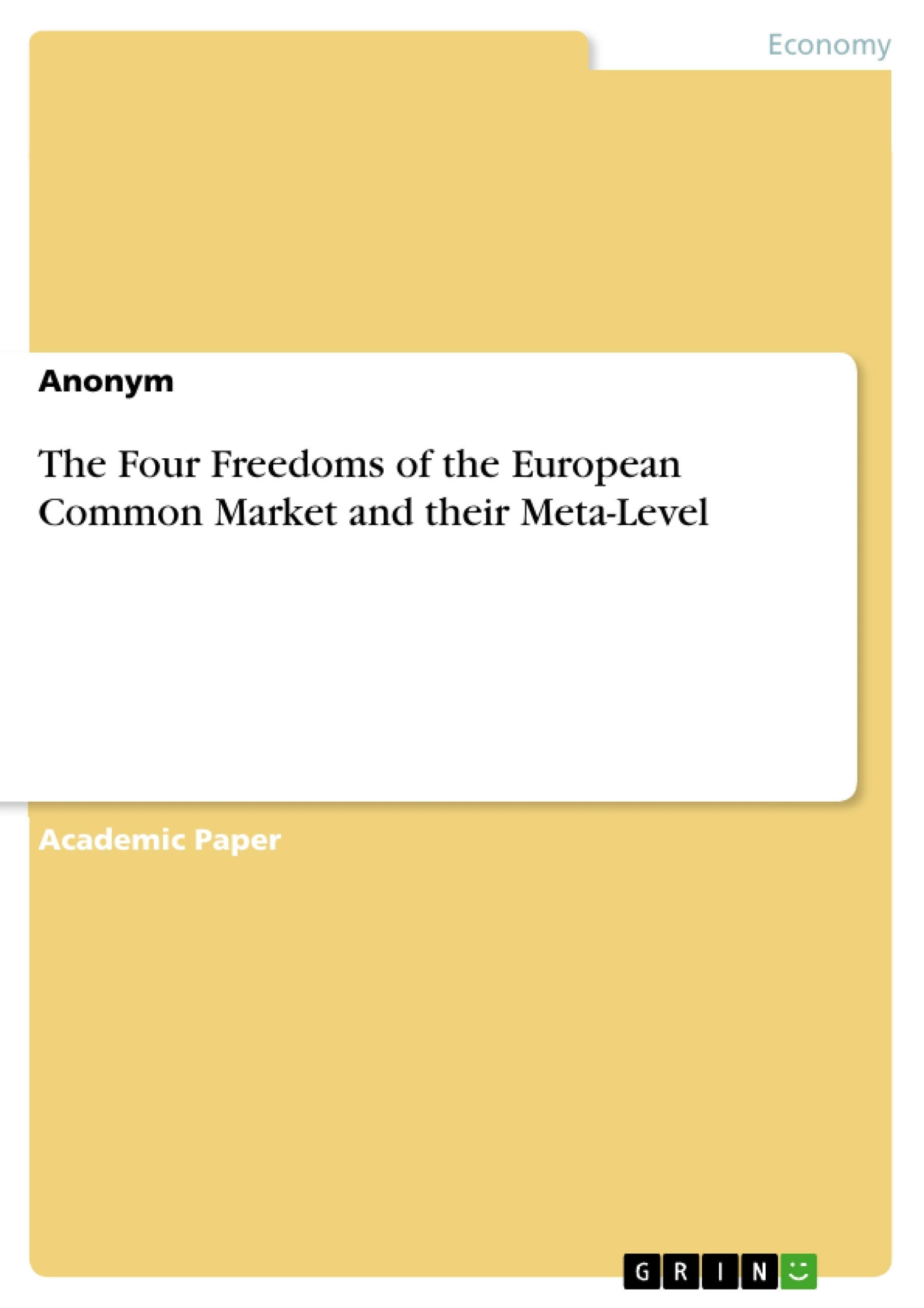This text analyses why the Four European Freedoms are such important elements of the development of the EU.
In our daily life it seems to be normal that we can travel from one European Member State to another without any passport or custom control; that we can live, work, study and do business everywhere in the EU. In every Member State at least more than two-thirds and overall 81% support the related Freedom of "Free Movement of Persons". The Freedom of Movement of Persons is one of the "Four Freedoms" that are fundamental for the EU.
Table of Contents
- Introduction
- The Reasons for establishing Free Trade
- The Free Movement of Goods
- The Scope of the Free Movement of Goods
- The internal Dimension
- The external Dimension
- The Free Movement of Persons
- The personal Scope
- Free Movement of Workers
- Freedom of Establishment
- The Freedom to provide and receive Services
- The Scope of the Freedom of Services
- The Free Movement of Capital
- The Scope of the Freedom of Capital
- The Meta-Level of the Four Freedoms
Objectives and Key Themes
This writing assignment aims to provide a comprehensive overview of the "Four Freedoms" of the European Common Market. It delves into the reasons behind establishing free trade and examines the internal and external dimensions of each freedom.
- The significance of free trade in the development of the EU
- The "Four Freedoms" as fundamental principles of the Common Market
- The internal and external dimensions of the free movement of goods, persons, services, and capital
- The impact of the "Four Freedoms" on the European economy and society
- The meta-level of the "Four Freedoms" and their broader implications for European integration
Chapter Summaries
The introduction highlights the significance of the "Four Freedoms" in our daily lives, particularly the freedom of movement of persons. It establishes the concept of the Common Market as a key objective of the European Union.
The chapter on the reasons for establishing free trade explores the benefits of specialization, comparative advantage, and economies of scale. It emphasizes the historical context of post-World War II cooperation and the evolution of the European Common Market.
The chapter on the free movement of goods delves into its scope, internal dimension, and external dimension. It discusses the prohibition of customs duties, quantitative restrictions, and other measures that impede trade. The chapter also examines the limitations of free movement of goods based on public morality, public policy, and public security.
The chapter on the free movement of persons briefly outlines the personal scope, free movement of workers, and freedom of establishment. It highlights the importance of the freedom of movement of persons as one of the "Four Freedoms."
The chapter on the freedom to provide and receive services explores its scope, focusing on the provision of services across national borders. It emphasizes the importance of this freedom for economic growth and integration.
The chapter on the free movement of capital delves into its scope, exploring the free flow of capital between Member States. It discusses the implications of this freedom for investment and economic development.
Keywords
The key concepts explored in this writing assignment include the European Common Market, the "Four Freedoms", free trade, the free movement of goods, persons, services, and capital, comparative advantage, economies of scale, internal and external dimensions, and the meta-level of the "Four Freedoms".
- Quote paper
- Anonym (Author), 2020, The Four Freedoms of the European Common Market and their Meta-Level, Munich, GRIN Verlag, https://www.grin.com/document/995328




